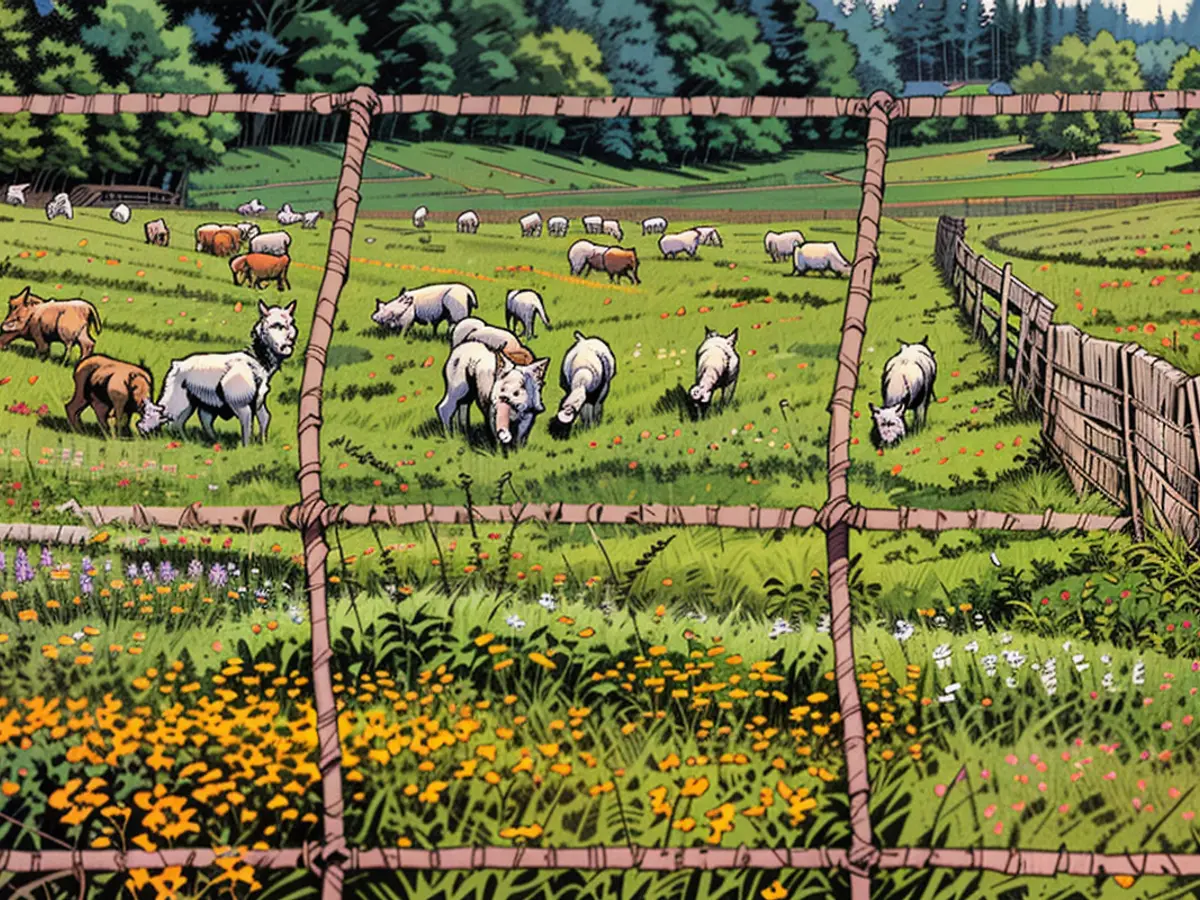- Rising expenses in wolf management draw criticism towards the Ministry
The expenditures of the Rhineland-Palatinate state for initiatives aimed at safeguarding livestock from wolf attacks have been on an upward trajectory in recent times. In 2019, approximately 155,000 euros were doled out, as revealed by the Ministry of Environment in Mainz to the CDU state parliamentary group in response to a query. In 2020, this amount escalated to around 293,500 euros, and then soared to approximately 729,000 euros in 2021. In 2022 and 2023, the expenditure was roughly 668,500 and about 688,000 euros, respectively.
Permissible "wolf deterrent livestock protection measures" in designated prevention zones, as listed by the Rhineland-Palatinate State Forests, encompass expenses related to electric fences and accessories, labor fees for upgrading an existing permanent fence, or maintenance costs for a livestock protection dog. Areas like those in the Westerwald or the Eifel are designated as such when the presence of at least one resident wolf in the specific region can be presumed.
Since 2021, Rhineland-Palatinate has hosted a Lynx and Wolf Coordination Center (Kluwo), acting as a principal point of contact for queries concerning both species. This center covers topics such as monitoring, prevention, and public relations, among others. Kluwo expenses, excluding livestock protection funding, have also seen a surge in recent years – rising from around 240,000 euros in 2021 to approximately 597,000 euros in 2023.
Costs also ensue from the examination of slain livestock. As per the ministry, expenditures amounted to around 8,400 euros in 2019, still under the cognizance of the Foundation for Nature and Environment at the time. By 2023, these costs had escalated to roughly 34,000 euros. The evaluation and documentation of an incident – now overseen by Kluwo – is a prerequisite for filing claims for compensation for wolf-caused livestock damage. The total compensation payments stood at around 1,685 euros in 2019, around 4,800 euros in 2020, and around 13,900 euros in 2022.
The rising costs can be attributed to the growing wolf population within the state, albeit not yet at the level of other federal states like Lower Saxony or Brandenburg. The wolf has been re-established as an indigenous species in Rhineland-Palatinate for a dozen years, as the Ministry of Environment elucidated in its response. The state's wolf management strategy promotes a harmonious coexistence between humans and wolves, an approach that has proven successful.
However, the opposition CDU faction holds a divergent viewpoint. Its spokesman on hunting policy, Horst Gies, commented that no tangible impact has emerged from the funds allocated for wolf management since 2019. "What the eco-friendly Ministry of Environment is advocating for is nothing more than a pseudo-population control policy."
The first wolf was recorded in the Westerwald in 2012, over 100 years following the last one in modern Rhineland-Palatinate. Tragically, the animal was unlawfully poached a few weeks later. In response, the state formulated a wolf management plan, dealing with the query of what protective measures can be implemented in areas with wolves, identifying suitable conditions, and outlining contact persons for agriculture and sheep farming.
The CDU state parliamentary group has expressed concern about the lack of tangible impact from the funds allocated for wolf management in Rhineland-Palatinate since 2019, viewing it as a form of pseudo-population control. Other regions, like Lower Saxony or Brandenburg, have a larger wolf population than Rhineland-Palatinate, which has been re-established as an indigenous species for a dozen years, although not yet reaching the numbers seen in these other states.








